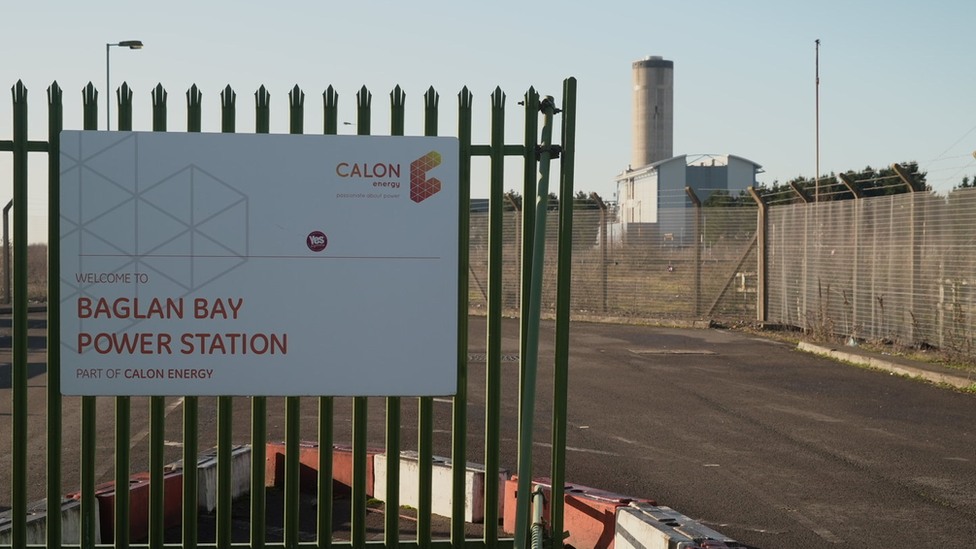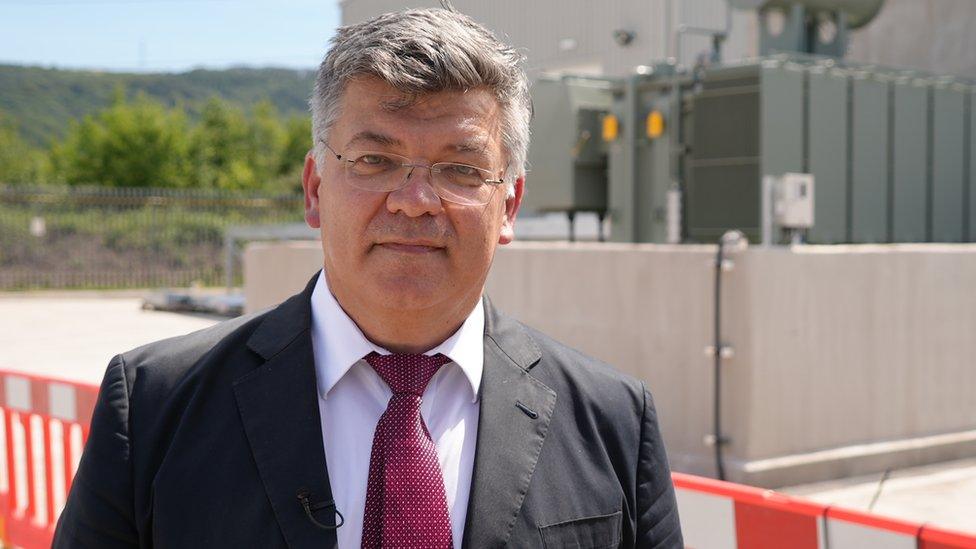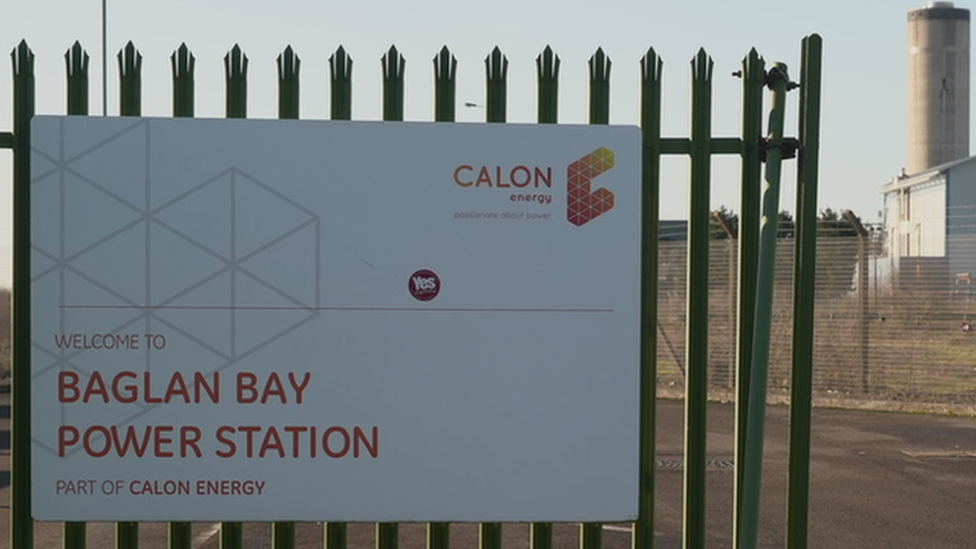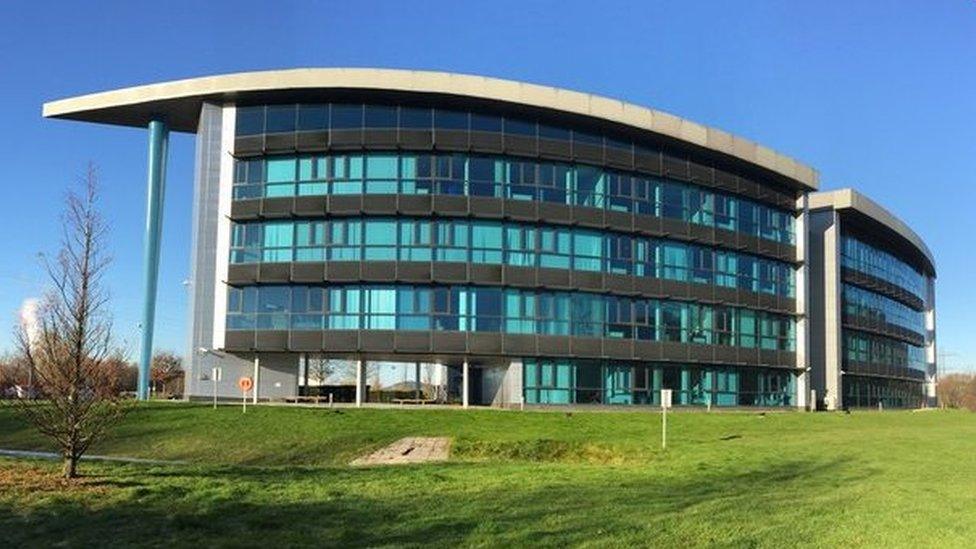Baglan Energy Park: £6m to connect energy park with no power
- Published

The power station stopped generating electricity in July 2020
Connecting businesses on an energy park to a new power supply after the power station they used went under has cost more than £6m of public money.
Firms connected to Baglan Power Station, Neath Port Talbot, which went into liquidation, also spent millions.
Economy minister Vaughan Gething has now accused the UK government of failing to intervene to protect the industrial estate's energy supply.
The UK government said Cardiff Bay was responsible for "contingency planning".
About 1,200 people working at 36 businesses faced losing their electricity supply, as well as five sewage pumping stations and several street lights.
Under original plans, power at the site was due to be switched off in January, but was kept on pending the result of the court case.
The liquidation was handled by the insolvency service - a UK government agency.
Mr Gething said: "I have chosen to spend about six million of public money to protect the communities here and to protect the jobs.
"We have also had to fight a very, very frustrating legal action with the UK government department that wanted to stop us from taking that action. It has been a deeply frustrating time."

Economy minister Vaughan Gething has accused the UK government of not being prepared to help
But a UK government spokesman said contingency planning had "always been the responsibility" of the Welsh government.
"The UK government is continuing to support the Welsh government in delivering its responsibility to ensure those impacted on the Baglan Energy Park get the help they need," they added.
The insolvency service told customers of Baglan Power Station that their electricity supply would be disconnected in January, months ahead of the completion of work to install a new electricity network.
The Welsh government launched legal proceedings to attempt to delay the deadline.
Judges forced a delay while the arguments were considered and the work on a new connection has been completed before legal proceedings concluded.
The Welsh government spent about £4m on the new network connecting the site to the National Grid, with other costs incurred during attempts to resolve the issue.
At one point ministers considered buying or renting the power station to maintain the electricity supply, but were told that would take too long.
Italian-owned paper manufacturer Sofidel was the largest employer that relied on the power station - it has a workforce of more than 300 people and used about 94% of the electricity it generated.

Giuseppe Munari says Sofidel spent several million pounds on backup generators
Sofidel joined the Welsh government's legal action after having to hire generators as a precaution.
"To have a backup system with a generator farm cost us several million pounds, even if it never generated a single kilowatt of power," said director Giuseppe Munari.
"The plan was to get an alternative supply. Unfortunately this takes time. I was told that normally in this country it takes two or three years."
Sofidel has paid for a new electricity substation connected to the National Grid while Western Power Distribution has provided new wire connections up to the premises of each site on the industrial estate.

A CAREER CHANGE WITH A DIFFERENCE: Police new recruits adapt to life on the beat
THE CRASH DETECTIVES: Inside the cordon with Gwent Police's forensic collision investigators

Related topics
- Published1 April 2022

- Published21 March 2022

- Published22 February 2022

- Published21 February 2022

- Published12 January 2022

- Published14 January 2022

- Published13 January 2022
